As Cassie Sainsbury languishes in jail, Aussie authorities head to Colombia to wage a coke war
AS accused drug mule Cassie Sainsbury languishes in a Colombian jail, Aussie authorities are going straight to the source to wage a covert war on drugs in South America.
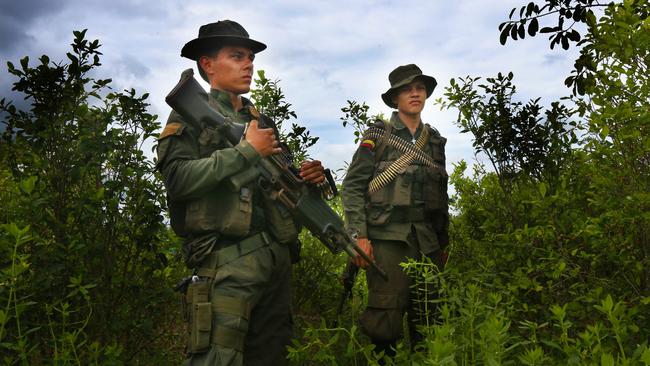
World
Don't miss out on the headlines from World. Followed categories will be added to My News.
EXCLUSIVE
AUSTRALIA has launched an extraordinary covert war on drugs in a dense South American jungle after authorities identified the main source of the record hauls of cocaine currently hitting our shores.
Such is the scale of the operation, Colombia backed by Australian, American and European Union authorities have created for the first time a multi-agency force of paramilitary police, army and navy to combat drug cartels and their crops at source.
An eight-month investigation by News Corp Australia including exclusive unfettered access to the frontline of the cocaine fight and police intelligence files, has identified three main cartels targeting Australia and Russia, the two most lucrative cocaine markets in the world, and the incredible lengths they are going to for their multi-billion dollar empires.
The revelation comes as 22-year-old South Australian Cassie Sainsbury languishes in a Colombian jail after allegedly trying to smuggle 5.8 kilos of cocaine into Australia.
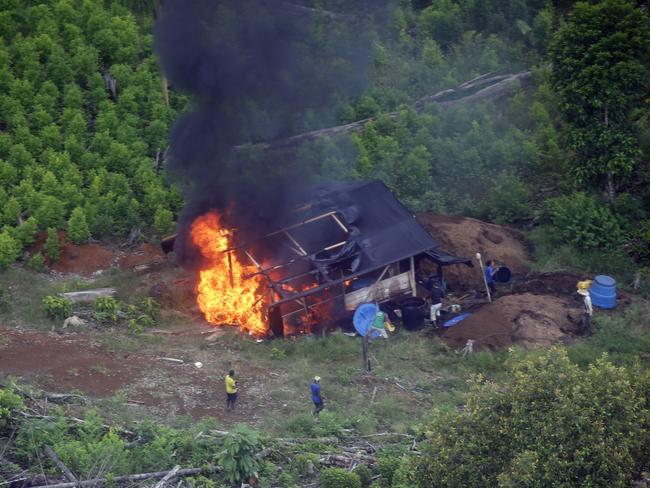
Across the border another three young Australians sit in an Ecuadorean jail arrested in January also for alleged cocaine trafficking; the profits that can be gained pushing cartels to get the drugs here anyway they can.
Never have international authorities formed such a land, sea and air assault to combat the global glut of cocaine, the offshore movement of which has not been seen since the heady day of Pablo Escobar in the 1980s.
And such is the onslaught of drugs, cartels from Colombia, Ecuador and Mexico are now fighting and killing each other as well as police for a slice particularly of the lucrative Oceania market.
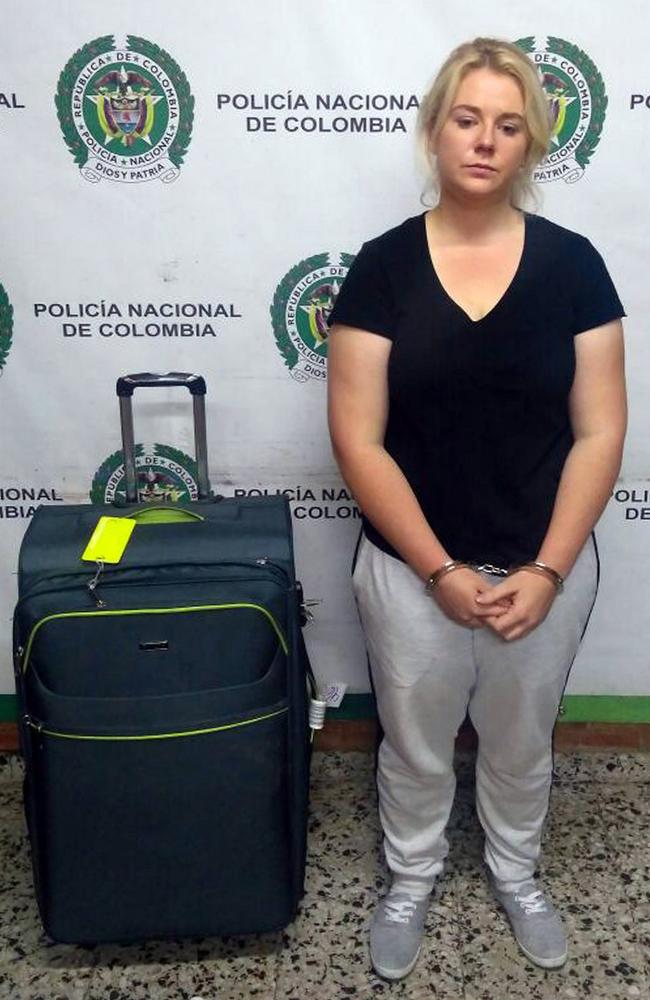
In all of the 2015/16 financial year, 657kgs of cocaine was seized by Australian Federal Police and Australian Border Force (ABF), about double the amount seized the previous year.
But in the past six months alone, Australian law enforcement has already identified more than five tonnes as having been dispatched to Australia and say more is already being tracked on its way from Colombia.
“This is the war we have to have, it’s just about the drugs and what we have to do so children don’t fall into this addiction,” Colombian national police Colonel Tito Castellano said as he led a squadron of Black Hawk helicopters into the dense jungles from an air base in Tumaco on the border of Colombia and Ecuador, to eradicate vast coca fields and an extensive array of crude drug labs preparing hauls specifically for the Australian market.
“This is the first time we have used all agencies together and it is for everyone because it is right here drugs go for America, Australia and places in Europe like Spain.”
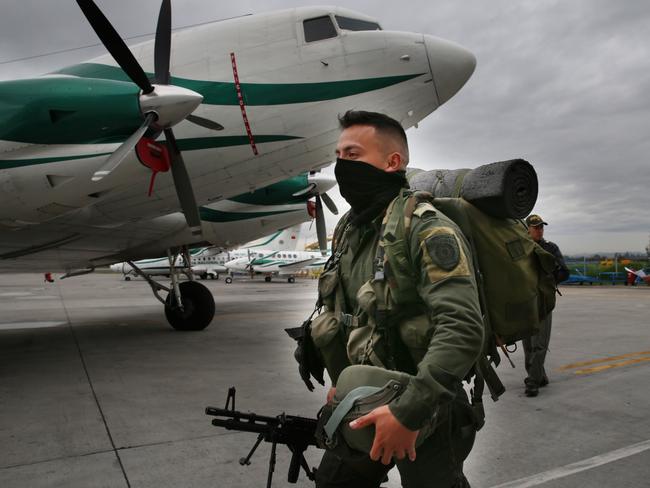
The AFP has a post in Bogota but engage eight to 10 combat-ready paramilitary police on Australia’s payroll to act in this country’s interests.
News Corp Australia has learnt that such is the scale of the problem now, AFP resources are also to be dispatched to Mexico as well with police intelligence identifying the powerful Mexico-based Sinaloa cartel as having taken over the majority of drug distribution to our shores.
Police intelligence shows three central Colombian-based networks producing the coca for Sinaloa, including Clan del Golfo, militant guerillas Los Pelusos and Marxist extremist ELN (National Liberation Army) cartel, classified in the US and EU as a terrorist group, targeting Australia with multi deliveries.
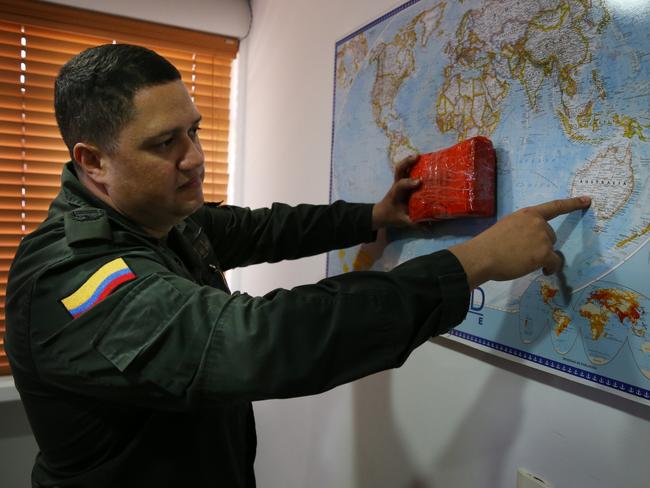
Such is the profit margin it can afford to lose four out of every five seizures and still make a profit.
Guatemala, Honduras and El Salvador have also become a strategic transit point for Australian trafficking and Cuba has been identified as a potential new transit stop, prompting the AFP to visit counterparts there.
“You can’t seize your way out of this, it’s got to be a whole process ... wherever there is demand there is supply,” AFP’s head of Americas Grant Edwards said.
“In terms of what we are seeing there is no shortage of people, criminals, willing to traffic to Australia as we’ve seen recently with the large shipments we’ve detected. “The quantities moving to Australia are substantial and like I said you can buy kilo of cocaine in South America for $2500 and to Australia US$180,000 so it’s mind-blowing the profits that can be made.”
‘WE NEED YOUR HELP’
Colombia has appealed to Australia to help build greater capacity in the fight on cocaine with more intelligence and technology sharing to combat narcotics which has now been found to indirectly fund global terrorism.
Justice Minister Michael Keenan is to travel to Colombia later this year for high level talks on how to better combat narcotics trafficking.
The AFP is also looking to bolster operations in the Americas notably in Mexico and provide greater opportunities for senior Colombian police to perform three-month study exchanges in Canberra.
But newly appointed Colombian National police chief General Jorge Hernando Nieto said he wants to do more, with greater liaison with other Australian law enforcement agencies beyond what is being done.
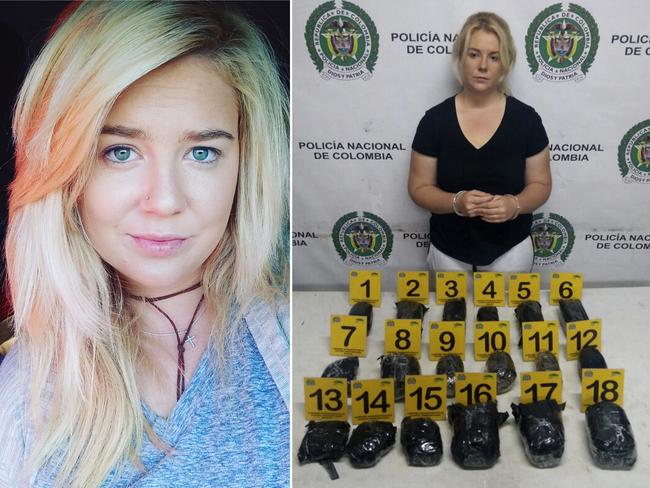
General Nieto said it was fine for Colombian police to attack the source of the drug in the jungles of his country but he was seeking greater international co-operation on dismantling the structures that was running the distribution.
He said he was seeking ways to bolster particularly co-ordination with Australia which he said was recognised as a world leading consumer of narcotics.
“One of the most important things Colombia did was to open the aperture for international co-operation that allow us to make the important results,” he said.
“And here we have to work hard for criminal investigations for us to stay in front on the international fight.
“What we want is greater co-operation. We have to strengthen the human aspect of an investigation but then there’s the technology aspect, the capacity aspect and having that interchange international to bring together all aspects of the criminal investigation not just the tactical but judicial and operational intelligence in order to be more effective.”
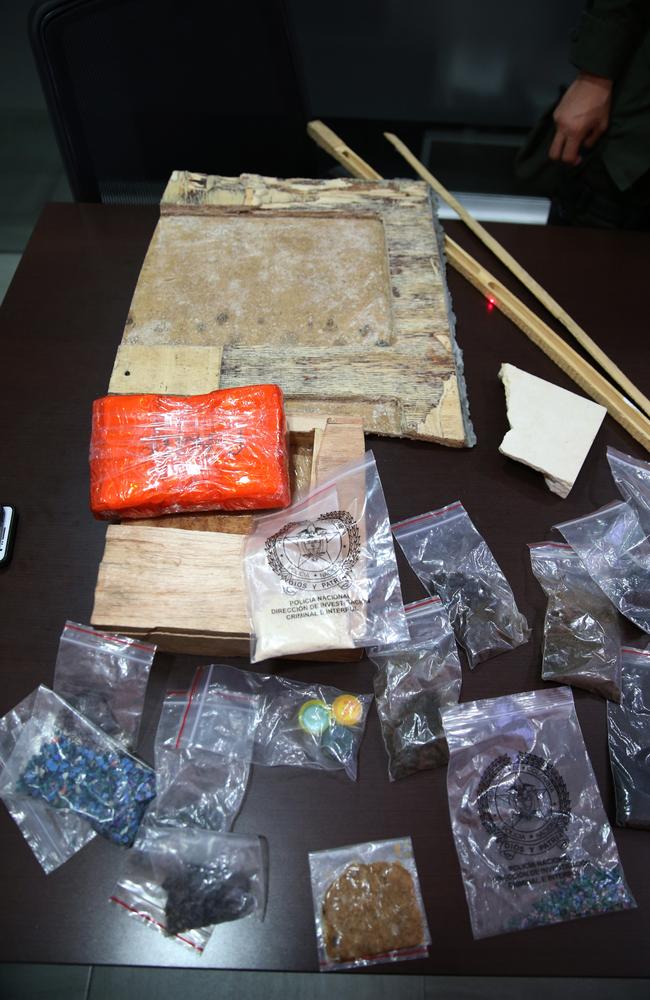
The call came amid a Colombian police probe establishing a direct line between Colombian and Venezuelan cocaine clans linked to Islamic State and al-Qaeda figures in Syria as well as Hezbollah to sell cocaine to fund terror operations.
Mr Keenan agreed international co-operation was the way to go.
“We are very successful in sending our (law enforcement) agents where they need to be whether its China for amphetamines and crystal meth in particular whether it be Colombia for cocaine, our agents go where they need to be to work on international relationships to stop drugs at their source and we do it very successfully,” he said.
“It’s enormous global business the dealing with drugs and we do need to deal with it on a global basis.”
CASHING IN ON COKE WAR
Australian businesses are primed to reap the benefits of the new war on coca plantations with Colombian offers for companies to buy into the reclaimed lands for coffee, cocoa and palm oil plantations.
The Colombian Government has praised Australia’s move to open a full embassy in capital Bogota as opposed to just the current minimal consulate operation, as placing its firms in the box seat to capitalise on business opportunities and trade.
Since the signed peace and disarmament accord with Leftist rebels FARC, which led to internal conflict since 1964 and left 200,000 dead, the Colombian economy has stabilised and the country is now booming.
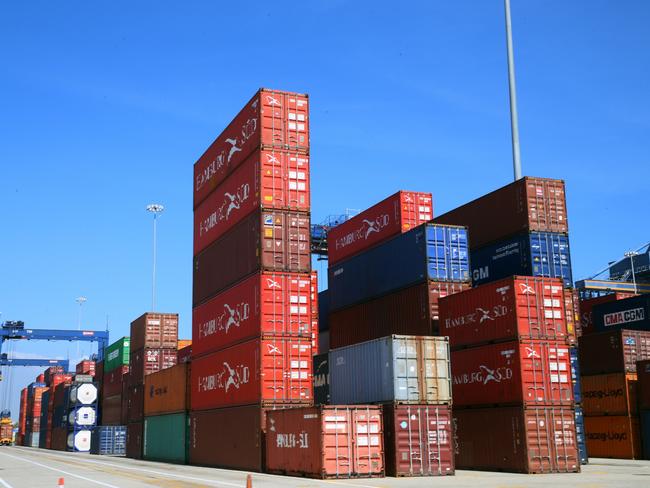
The government is sponsoring a crop radiation and substitution program of former FARC plantations, where farmers are encouraged with financial grants to swap cocaine- making coca plants for bananas, cocoa to make chocolate, palm oil and other crops in these high nutrient lands.
They are now appealing to outside firms to invest in the new mass crops.
“We are very happy with the notification that you are going to open an embassy here this year, its amazing development for co-operation between both our countries and we’ll do a lot of things more not just co-operation in security but agricultural things, economical, trade,” Colombian National Police International relations officer Colonel Herman Monsalve said.
“It could be Australian investors for our palm oil, chocolate, avocados for sure, we have a very wide kind of products we can export and we have already signed many new free trade agreements with many countries like United States and European Union, Korea and they have worked perfectly so far. Training too, we have a lot of students training in Australia and I’m sure this embassy will improve co-operation.”
The Department of Foreign Affairs confirmed there was to be a new embassy but a spokesman said they did not know when or why it was to open.
Originally published as As Cassie Sainsbury languishes in jail, Aussie authorities head to Colombia to wage a coke war


